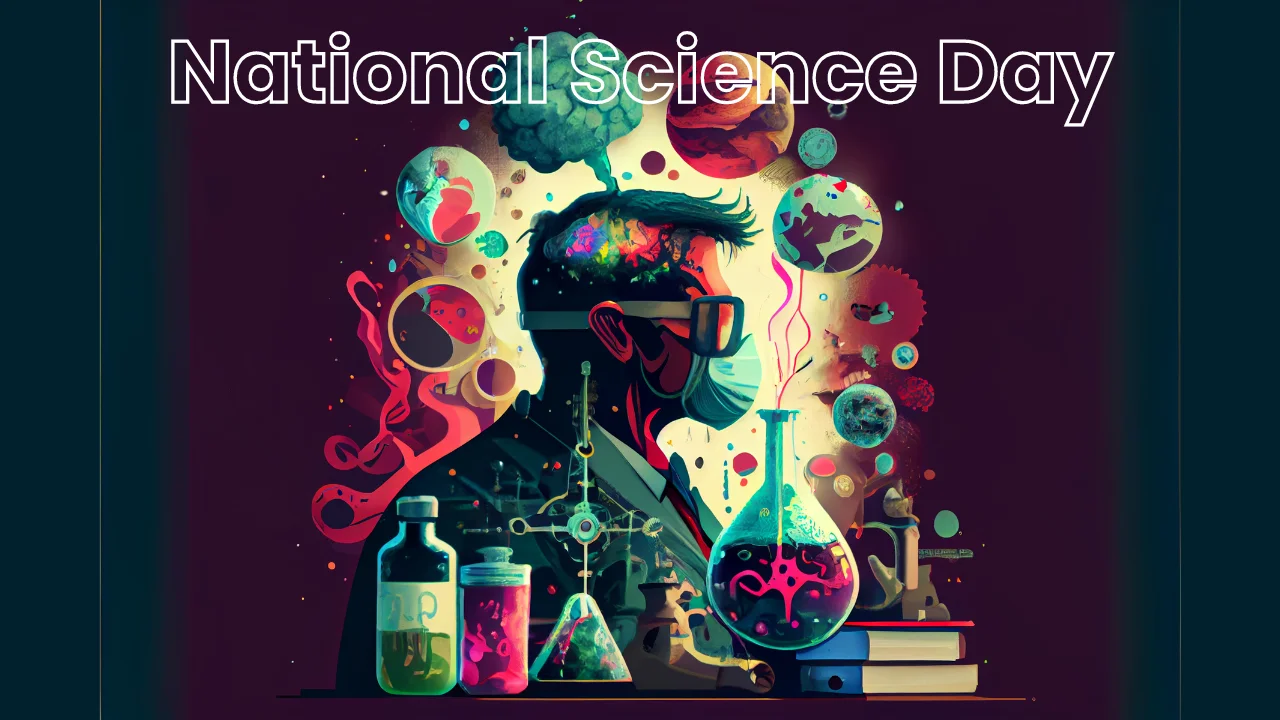National Science Day 2024
National Science Day is celebrated annually on February 28th in India to commemorate the discovery of the Raman Effect by Sir C. V. Raman in 1928. This scientific discovery earned him the Nobel Prize in Physics in 1930.
National Science Day Theme 2024
The theme for National Science Day 2024 is “Indigenous Technologies for Viksit Bharat”. This theme underscores the critical role science and technology play in tackling global challenges and creating a more sustainable future for all.
The theme focuses on areas like:
- Climate change: Developing solutions to mitigate climate change impacts and promote renewable energy sources.
- Resource depletion: Exploring sustainable management of natural resources like water, energy, and food.
- Environmental degradation: Implementing strategies for pollution control, waste management, and biodiversity conservation.
- Sustainable development: Integrating science and technology into development strategies for achieving economic prosperity while protecting the environment.
History of National Science Day
National Science Day, celebrated annually on February 28th in India, holds a rich history steeped in scientific discovery and progress. Let’s delve into its origins and evolution:
1928: The Discovery of the Raman Effect

The journey began in 1928 when physicist Sir C. V. Raman made the remarkable discovery of the “Raman Effect,” a scattering of light in inelastic collisions with molecules. This groundbreaking discovery earned him the Nobel Prize in Physics in 1930, marking a significant milestone for Indian science.
1986: Recognizing the Need
Recognizing the need to nurture a scientific temper and promote research among the youth, the National Council for Science and Technology Communication (NCSTC) proposed establishing a dedicated day to celebrate science.
1987: The First National Science Day
Following the government’s approval, February 28th was formally declared National Science Day in 1986, marking the first official celebration in 1987.
Celebrating Achievements and Inspiring Future Generations
National Science Day serves several key purposes:
- Commemorating the discovery of the Raman effect and celebrating the achievements of Indian scientists.
- Promoting scientific awareness and understanding among the public.
- Encouraging young people to pursue careers in science and technology.
- Providing a platform for showcasing scientific advancements and innovations.
- Inspiring future generations to contribute to scientific progress and address global challenges.
National Science Day continues to be a significant event in India’s scientific calendar. By remembering the past, celebrating the present, and looking toward the future, National Science Day plays a crucial role in shaping India’s scientific landscape and inspiring generations to come.
What is the Raman Effect
The Raman effect is an inelastic scattering of light by matter, meaning that there is an exchange of energy and a change in the light’s direction. This phenomenon occurs when a photon (particle of light) interacts with a molecule and excites it to a higher vibrational or rotational energy state.
How it works
- Incident light: A beam of light, typically from a laser, shines on a sample.
- Interaction with molecules: Photons in the beam interact with the electrons in the molecule.
- Energy transfer: Some of the photons lose energy to the molecule, causing it to vibrate or rotate at a higher energy level.
- Scattered light: The excited molecule then releases the energy as a photon with a different frequency (color) than the incident light. This scattered light is called the Raman scattered light.
The change in frequency of the scattered light is called the Raman shift. It is unique to each molecule and provides information about its vibrational and rotational energy states. By analyzing the Raman shift, scientists can identify the molecule and study its structure, composition, and other properties.
Applications of the Raman Effect
- Material analysis: Identifying and characterizing materials in various fields like chemistry, biology, geology, and medicine.
- Drug discovery and development: Identifying and studying the structure and behavior of molecules involved in biological processes.
- Environmental monitoring: Detecting and monitoring pollutants in air, water, and soil.
- Forensic analysis: Identifying unknown substances and materials at crime scenes.
- Food safety: Identifying and analyzing food contaminants and adulterants.
- Art restoration: Analyzing the composition and age of art materials and identifying forgeries.
The Raman effect is a powerful tool with diverse applications in various fields. It provides a non-destructive and sensitive technique for studying various materials and processes, leading to advancements in scientific research, technology development, and quality control in various industries.
Significance of National Science Day
National Science Day holds immense significance for several reasons, both historically and in the present day:
- Commemorates a groundbreaking scientific discovery: The day celebrates the discovery of the Raman Effect by Sir C.V. Raman, a significant milestone for Indian science.
- Recognizes the contributions of scientists: It honors the achievements of Indian scientists and their contributions to scientific progress.
- Highlights the importance of scientific temper: The day promotes the development of a scientific mindset and encourages critical thinking and problem-solving skills.
- Encourages young people to pursue careers in science and technology: The day aims to inspire the next generation of scientists and researchers.
National Science Day plays a vital role in:
- Building a strong scientific foundation for India’s future.
- Promoting innovation and technological progress.
- Enhancing the quality of life for all citizens.
- Creating a more sustainable and equitable future for the planet.
As India continues to strive for scientific advancement and technological innovation, National Science Day will remain a significant event. By celebrating the achievements of the past, encouraging future generations, and focusing on pressing global challenges, National Science Day will continue to inspire and empower individuals and communities to build a brighter future for all.
28th February 2024 Special Day
On February 28, 2024, India marks National Science Day, an annual celebration honoring the pivotal discovery of the Raman Effect by Sir C. V. Raman in 1928. This groundbreaking revelation, which transformed our understanding of light and matter interaction, led to Raman being awarded the Nobel Prize in Physics in 1930. The day serves as a testament to India’s scientific prowess and a reminder of the transformative impact of groundbreaking discoveries.
- Indian Bank Recruitment 2025 Out for 1500 Apprentice Posts
- Indian Bank Apprentice Salary 2025, Pay Scale, Salary Structure
- Indian Bank Apprentice Syllabus & Exam Pattern 2025, Check Details
- Railway RPF Syllabus 2024, Check Exam Pattern, Topic And Syllabus
- SSC JE vs RRB JE, Which Is Better? Know Detailed Comparison
- SSC CGL Study Plan 2025 For Next 25 Days With Tips, Tricks

Hello, I’m Aditi, the creative mind behind the words at Oliveboard. As a content writer specializing in state-level exams, my mission is to unravel the complexities of exam information, ensuring aspiring candidates find clarity and confidence. Having walked the path of an aspirant myself, I bring a unique perspective to my work, crafting accessible content on Exam Notifications, Admit Cards, and Results.
At Oliveboard, I play a crucial role in empowering candidates throughout their exam journey. My dedication lies in making the seemingly daunting process not only understandable but also rewarding. Join me as I break down barriers in exam preparation, providing timely insights and valuable resources. Let’s navigate the path to success together, one well-informed step at a time.






